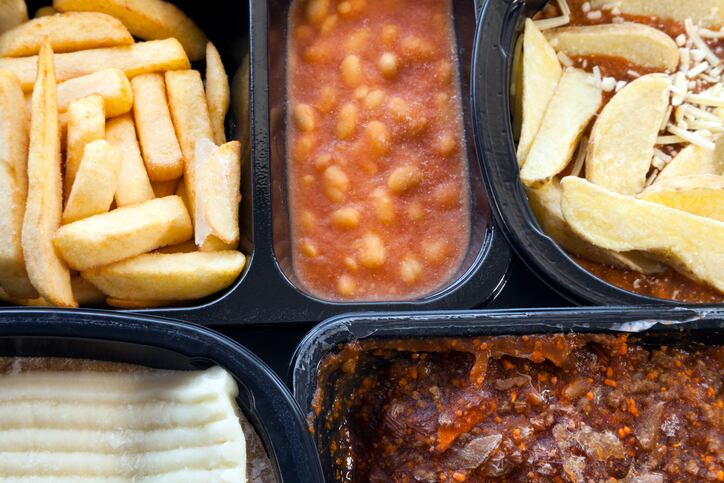The report, which has been a work in progress for months and subject to multiple hearings, was voted on yesterday by a committee made up of 29 cross-party politicians from the National Assembly.
Due to be published in full in the coming days, the report calls for strict measures to “improve the quality of industrial food” and public health, from limiting the number of additives used in processed foods to banning junkfood marketing to children and prohibiting health claims on unhealthy foods.
Currently 338 additives are authorised in processed foods in France. The commitee wants to limit this to 48 – the same number allowed in organic food – by 2025 and to cap the number of additives used per category in the same product. Instead of allowing manufacturers to add three colours, four flavours and two emulsifiers to one food product, for instance, they would only be permitted one colour, one flavour and one emulsifier.
The 29 politicians also want to see manufacturers forced to reduce salt, sugar and trans fats in foods.
“Considering the proven failure of voluntary commitment measures, [the committee proposes] introducing a regulation limiting the salt, sugar and trans fatty acid content of processed foods.”
Food manufacturers have made “some progress” but the recommendations made by France’s national food safety agency, ANSES, in 2002 regarding the salt content of have not been respected, the MPs say.
They therefore call for a mandatory maximum salt content of 18 g per kilo of flour used in bread. Maximum salt levels for other processed and pre-packaged products should be defined on a per category basis, while trans fats should not make up more than 2% of any product, as recommended by ANSES.
Manufacturers that do not respect these limits should be fined, the report reads.
Aware that changes to manufacturing and production processes do not happen overnight, the rapporteurs say they chose to focus on “measures to progressively achieve realistic goals”.
FoodNavigator contacted French trade association ANIA for its take on the report but did not receive a comment in time for publication of this article.
What is 'ultra-processed' food?
The NOVA food classification system was devised in 2009 by Brazilian researcher Dr Carlos Augusto Monteiro from the University of São Paulo's School of Public Health.
It includes four groups:
Unprocessed or minimally processed foods in group one include as fresh, dry or frozen fruit and vegetables; packaged grains and pulses; flours made from corn, wheat, rye; pasta; eggs; fresh or frozen meat and fish and milk.
Group two includes processed culinary ingredients such as sugar, oils, fats, salt and other substances extracted from foods or nature used to season and cook.
Group three is made up of processed foods such as vegetables in brine, fruits in syrup, salted meat and fish, cheese and freshly made unpackaged breads.
Ultra-processed foods in group four, meanwhile, contains soft drinks, packaged snacks and confectionery; mass-produced packaged breads; reconstituted meat such as hot dogs and chicken nuggets, instant soups and noodles and industrially pre-prepared pizzas, pies and ready meals.
Ultra-processed foods also tend to be agressively marketed, served in big portion sizes and are designed to be eaten as snacks rather than regular meals, all of which contribute to excessive calorie and energy intake, and ultimately lead to overweight and obesity, according to Monteiro.
The rapporteurs call for the NutriScore, France’s official nutrition logo that was also recently adopted in Belgium, to be made obligatory on processed and 'ultra-processed' products produced in France.
Committee member Michèle Crouzet said a mandatory nutrition logo was “a prerequisite for any nutrition policy that is a little ambitious”.
Currently, the NutriScore logo is optional and only a handful of retailers and manufacturers - Danone, Fleury Michon and E.Leclercfor example - have adopted it.
The cocktail effect
Although the European Food Safety Authority (EFSA) and national food safety authorities have evaluated and approved all additives used by food and drink manufacturers in Europe, little research has been done on the combined and cumulative ‘cocktail effect’ of these additives and processing aids in the human body.
The committee members therefore want the French government to prioritise public research into the cocktail effect, which they say scientists suspect to have lasting health consequences”.
The government should also establish a multi-year plan to improve knowledge on the harmful residues and traces of nanoparticles in processed and ultra-processed foods, that would allow it to “implement technical programmes to eliminate their presence”.
Mineral oils in food must be strictly limited, with the politicians calling for zero “detectable presence” of mineral oil aromatic hydrocarbons (MOAH) and a maximum of 2 mg per kilo of mineral oil saturated hydrocarbons (MOSH).
Titanium dioxide, a food colouring used by manufacturers to give a white or opaque look to food that has been linked to genotoxic health effects due to nano-sized particles, should not be authorised in food.
'Total ban' on misleading health claims
The committee members also urge the European Commission to come up with a definition for nutrient profiling for fat, salt and sugar content and health claims – an issue over which it has been dragging its feet for years, despite the fact that it should have done so by 2009.
“In the absence of [the setting] of these profiles, one year after the adoption of the resolution, France will declare a total ban of nutritional claims considered misleading or untrue.
“[EU] regulation provided for the publication of nutritional profiles before the end of 2009; the inertia of the Commission for nearly 10 years on a subject of this importance requires a strong reaction.”
Mandatory country of origin labelling (COOL), which is already being trialled in France for processed meat and dairy products, should also be extended to processed and ‘ultra-processed’ products, the committee says.

